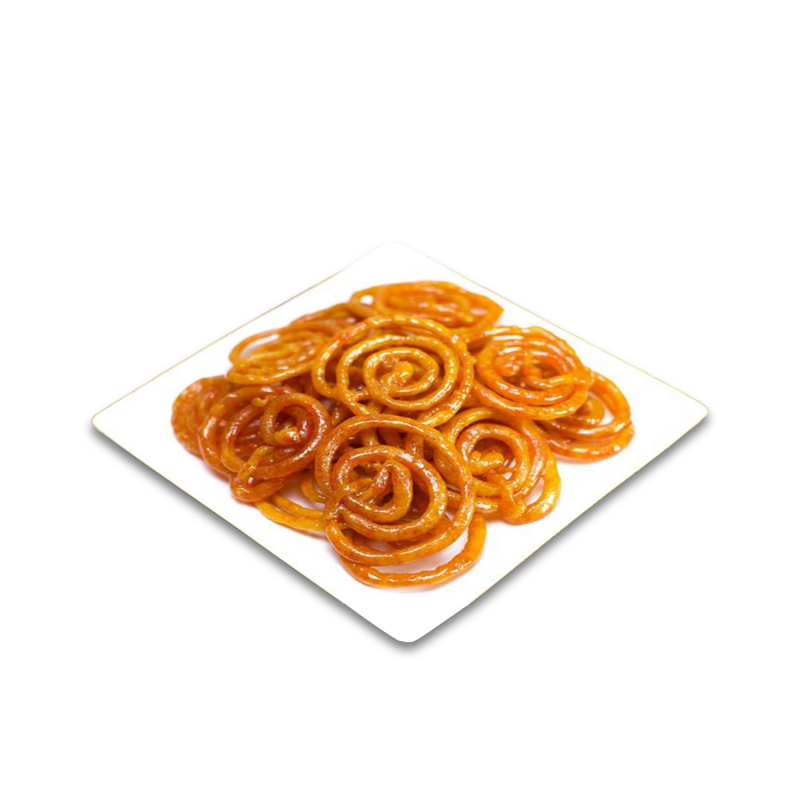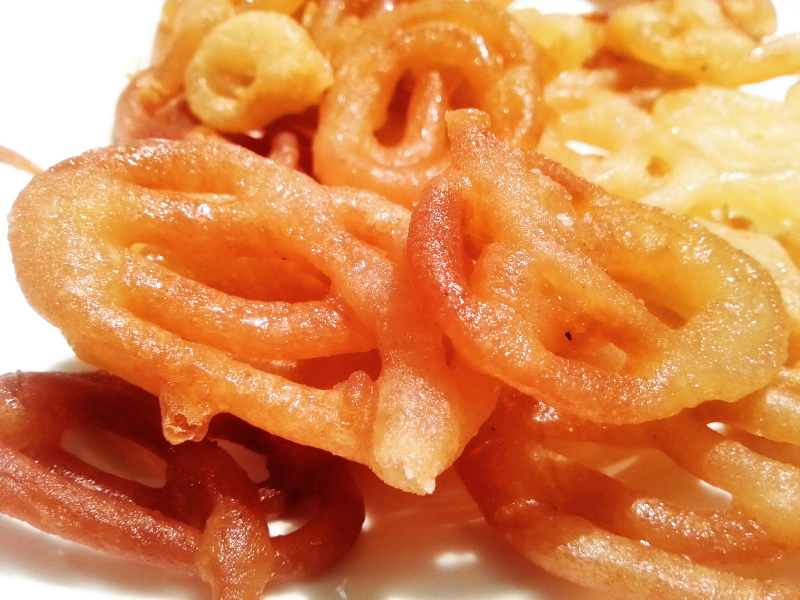Jilapi
Jilapi, or jalebi as it is commonly known, is not only a beloved sweet street food in Bangladesh but also has a rich history and variations across different regions. This crispy and sticky treat is made by deep-frying a wheat flour batter in a spiral shape and then soaking it in a sugar syrup.
The origins of Jilapi can be traced back to Western Asia, specifically the Middle East and Persia. The earliest mention of a similar sweet dish called Zulbiya dates back to the early 10th century. Persian cookbooks like 'Kitab al-Tabeekh' and Arabic cookbooks by Ibn Sayyar al-Warraq document the recipe and describe it as a sweet traditionally distributed among the masses during Ramadan and other festivities.
Over time, Jilapi made its way to the Indian subcontinent, including Bangladesh, where it became immensely popular. It is enjoyed by people of all ages and is commonly found in street food stalls and sweet shops across the country.
The preparation of Jilapi can vary slightly depending on the region, with some variations including the use of sesame oil, sesame seeds, yogurt, cinnamon, lemon, or cardamom for added flavor. The shape of the jilapi can also differ, ranging from a spiral to a pretzel-like shape called imarti.












